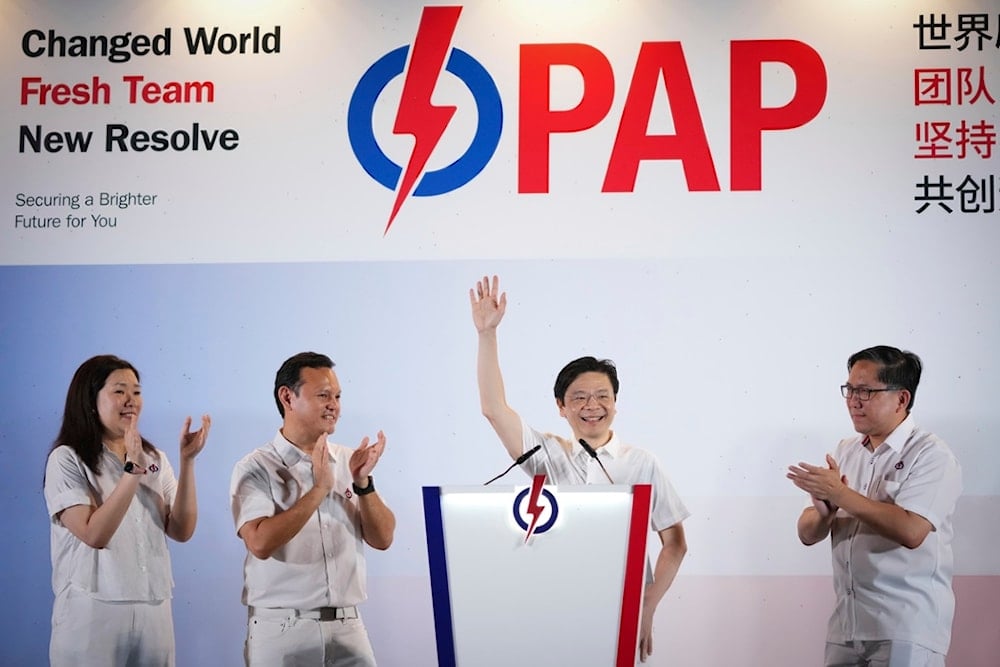Singapore ruling party secures strong election win, expands majority
The People's Action Party wins 87 out of 97 seats in Singapore’s election, as Prime Minister Wong warns of rising global instability and economic challenges.
-

Prime Minister Lawrence Wong's, from People's Action Party (PAP) thanks his supporters and voters at an assembly area for People's Action Party supporters, on the day of the general election in Singapore, Saturday, May 3, 2025. (AP)
Singapore's ruling People's Action Party (PAP) secured another decisive victory in Saturday's general elections, continuing its uninterrupted rule since 1959. The party garnered 65.6% of the vote, an increase from 61.2% in 2020, winning 87 out of 97 parliamentary seats under the first-past-the-post system.
The opposition Workers' Party retained its 10-seat presence in parliament, mirroring its previous standing.
Prime Minister Lawrence Wong hailed the results as a stabilizing force. "The results will put Singapore in a better position to face this turbulent world," he said early Sunday following the announcement.
Wong, a 52-year-old economist and former civil servant, succeeded Lee Hsien Loong last year. Lee, son of Singapore's founding leader Lee Kuan Yew, had held the premiership for two decades.
Continuity amid uncertainty
The vote comes amid global political realignments triggered by Washington's shift away from post-World War II trade norms. Recent elections in Australia and Canada also saw incumbent governments maintain power, as voters sought continuity in uncertain times.
Wong and senior PAP officials had emphasized the risks posed by a deteriorating global order. "The predictable and rules-based order we once knew is fading," he warned last month, following a renewed escalation of the US-China trade war led by President Trump.
Singapore, a global trade and finance hub, is especially vulnerable to external shocks. Last year, the total value of trade flowing through the city-state was triple its GDP. The government recently lowered its 2025 growth forecast to between 0% and 2%, down from earlier projections.
Domestically, the PAP has built its legacy on economic growth and expansive public housing policies. However, critics point to a tightly controlled political environment.
Rights groups have long accused Singapore of limiting opposition growth through restrictive campaign periods and electoral redistricting.
Singaporean authorities maintain that elections are fair, that redistricting reflects demographic shifts, and that political parties are free to campaign beyond the formal election period.

 2 Min Read
2 Min Read








